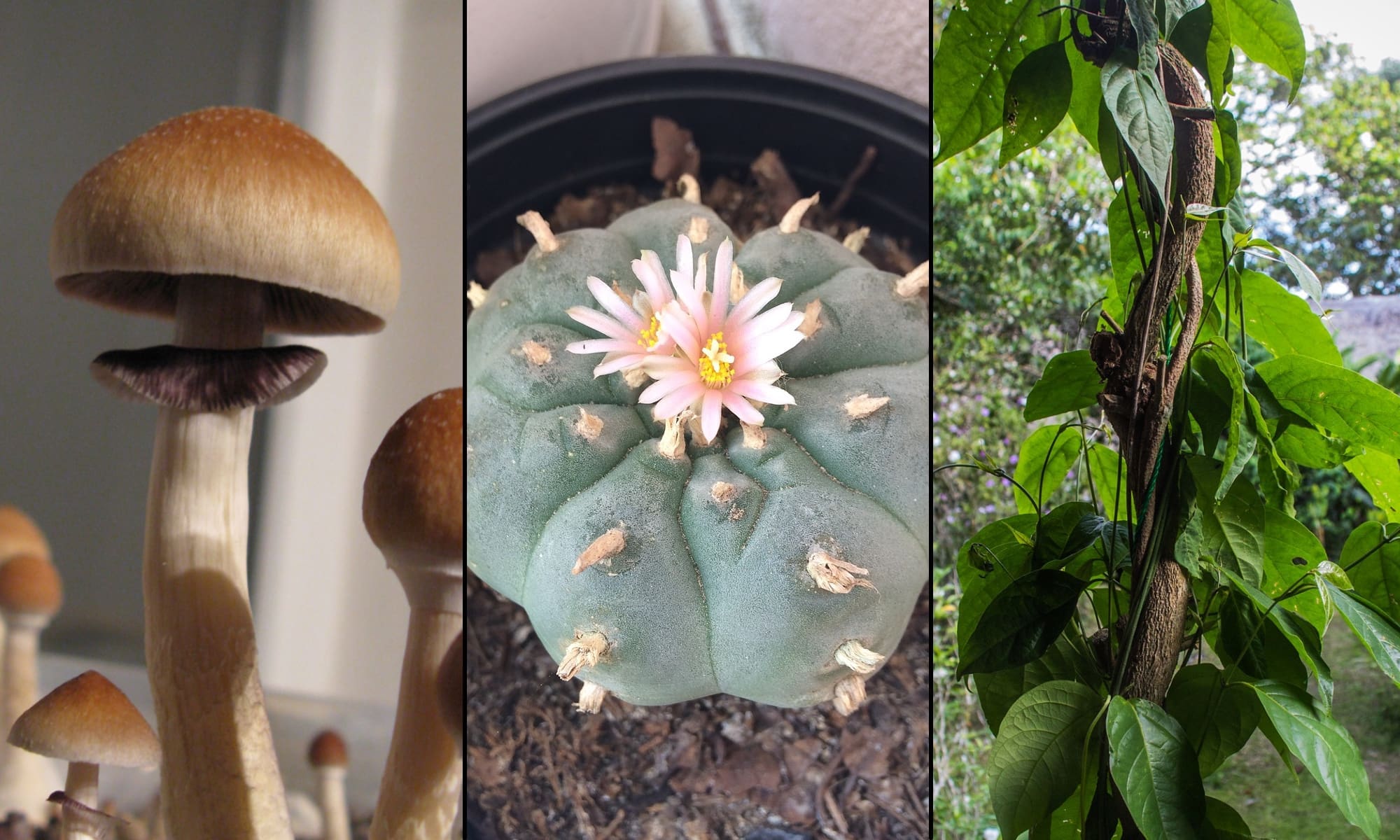Politics
California Campaign Withdraws 2024 Ballot Measure To Create State Psychedelics Research Agency

A California campaign has withdrawn its proposed ballot initiative to create a $5 billion state agency tasked with funding and promoting psychedelics research. That leaves two separate campaigns left to put psychedelics reform on next year’s ballot after the governor vetoed a bill to legalize possession of substances like psilocybin and begin work to establish regulated access.
Just weeks after supporters began collecting signatures for the Treatment, Research, Education, Access and Therapies (TREAT) California Act, the campaign announced on Thursday that it is suspending the effort.
The decision was informed by recent polling from the firm FM3 Research, which showed 60 percent of likely California voters oppose state funding for psychedelic therapies. Three in five Democrats supported the initiative after being presented with the summary language approved by the state attorney general’s office, but most independents and Republicans opposed it.
Seventy-four percent of California voters did agree that the state needs to address mental health issues like post-traumatic stress disorder (PTSD), but 45 percent were opposed to the idea of having the state fund therapies involving psychedelics to that end.
Accordingly, the campaign won’t be continuing to collect signatures for the initiative as planned, but it did announce the launch of a new TREAT Humanity campaign to more broadly explore mental health solutions for the state. The non-profit will be “committed to furthering treatments, research, education, access, and therapies to treat mental health and optimize wellbeing,” a press release says.
“We are in a mental health catastrophe. Millions are screaming for help, not just in California, but across the country,” Jeannie Fontana, CEO of TREAT California and founder of TREAT Humanity, said. “This polling shows people are in violent agreement about the problem, and we all need it solved. TREAT Humanity arises from this shared conviction. Our mental health crisis will not go away until we solve it.”
“This polling is not a sign of defeat. It is clarity about our path forward, illuminating our way with vision, hope, dedication, and determination,” she said. “The resolve of our team and coalition is unwavering. We need a path through these dark times in our country. We are all in this together, all part of the same human family, each of us a thread in the tapestry of humanity.”
The psychedelics institute that initiative supporters hoped to establish would have been designed to identify opportunities for advancing scientific research and development into the therapeutic potential of psychedelics. It would have created a state constitutional right to conduct research in California using all psychedelic substances except peyote. Among them are psilocybin, ibogaine, LSD, MDMA, ketamine and cannabis.
While the campaign was led by a team of seasoned strategists who previously championed successful ballot initiatives related to stem cell research, signaling a level of confidence about the psychedelics measure’s prospects, the polling ultimately raised questions about the path to passage.
The idea was to have voters approve $500 million in annual funding through government agency revenue bonds—rather than tax revenue—over the span of ten years, allowing the institute to provide grants and loans for psychedelics research. The intention was for the agency to be self-funded, with the institute reaching deals with grant recipients to hold intellectual property rights for what the research produces.
Grants would have needed to support research into the risks and benefits of psychedelic-assisted therapy for addiction, anxiety, depression, suicidality, post-traumatic stress disorder (PTSD), chronic and acute pain and other disorders such as obsessive compulsive disorder (OCD) and anorexia.
The state agency would have also facilitated the creation of “care programs” in California for psilocybin and MDMA once the psychedelics are approved for therapeutic use by the FDA.
“This movement is bigger than any single ballot initiative,” Guy McDermott, a former U.S. Navy SEAL and California firefighter, said. “Safe and effective psychedelic-assisted therapies are necessary to help us get through this mental health crisis. Our military should not have to leave our country to receive life-saving therapies. We will not stop until people who are suffering get the help they need and deserve. We absolutely must treat humanity.”
In order to qualify the constitutional amendment for next year’s ballot, the campaign would have needed at least 874,641 valid signatures from registered voters.
Deb Hubers, COO of TREAT, told Marijuana Moment in July that she was confident Californians would support the measure if it makes it to the ballot, pointing to recent national polling showing that a majority of Americans back legalizing psychedelic-assisted therapy.
Decriminalize California, a separate psychedelics campaign trying to qualify a measure for next year’s ballot, recently got approval from state officials to begin collecting signatures for its initiative to legalize psilocybin, including adult-use sales. Activists with the group have tried twice to put the reform on the ballot in prior cycles, but they’ve come up short, due in no small part to signature gathering complications during the pandemic.
Another new psychedelics campaign has also emerged in California, with advocates recently filing a ballot initiative with state officials that would create a right “to obtain and use psychedelics for medical, therapeutic and spiritual purposes” with the recommendation of a doctor. It would also allow adults to possess and use the substances in their home as well as cultivate entheogenic plants and fungi on private property.
Meanwhile, Gov. Gavin Newsom (D) recently vetoed a bill to legalize certain psychedelics and create a pathway to regulated access. In a veto message, however, he wrote that he wants the legislature to send him a new bill next year establishing guidelines for regulated therapeutic access to psychedelics and also consider a “potential” framework for broader decriminalization in the future.
Days earlier, Newsom signed off on a bill that would allow doctors in the state to immediately start prescribing certain currently illicit drugs like psilocybin and MDMA if they’re federally rescheduled.
Photo elements courtesy of carlosemmaskype and Apollo.




